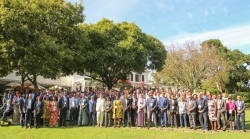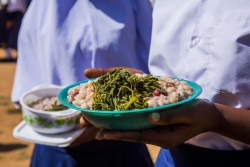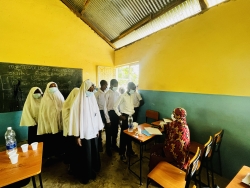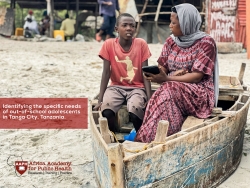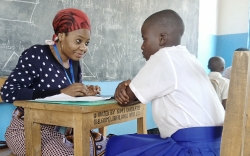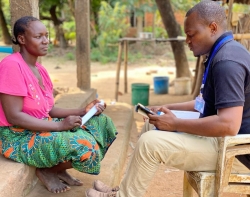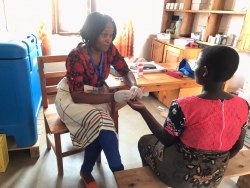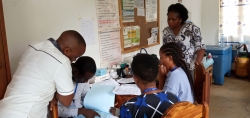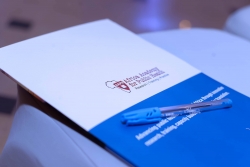Research Network for Design and Evaluation of Adolescent Health Interventions and Policies in Sub-Saharan Africa (DASH) is a network of public health research and training institutions from seven Sub-Saharan Africa (SSA) countries (Tanzania, Ghana, South Africa, Burkina Faso, Ethiopia, Nigeria, Uganda) and Germany. DASH is funded through the “Research Networks for Health Innovations in Sub-Saharan Africa” (RHISSA) initiative. This is one of the major funding initiatives of the German Federal Ministry of Education and Research (BMBF) which aims at building and expanding capacities on site and strengthening intra-African as well as African-German networking, and translating gained knowledge into policy and practice.
A comprehensive, school-based nutrition intervention package among secondary schools in Dodoma Tanzania using a cluster randomized design and mixed methods evaluation.
<p>School-based micronutrient supplementation and educational interventions to improve adolescent nutrition, health and education in Zanzibar.</p>
<p>Generating critical adolescent health data from diverse settings to help in developing novel digital approaches for engaging adolescents in communities and schools in Tanga funded by Fondation Botnar.</p>
A formative assessment of the school health and food environment to better understand the policy surrounding school health environments, individual and population-level risk factors, and the current state of adolescent health, as are relevant to support the design, delivery and scale-up of high impact nutrition and health interventions through schools.
AAPH emparks on a study that aims to understand the uptake, effectiveness and the factors influencing the male involvement
strategy in improving care-seeking behaviour, nutritional practices, home care practices and couple relationships for better maternal, new-born child health and nutrition outcomes.
AAPH sets out to explore nutritional status of pregnant women, access and existing barriers to quality maternal and nutrition health services in Mbeya region.
USAID’s Lishe Endelevu (LE) activity is a 4-year agreement that will intensify and integrate nutrition support and improve the nutritional status of women, children and adolescents in 4 regions of Tanzania (Dodoma, Iringa, Morogoro, and Rukwa).
Neonatal Vitamin A supplementation at birth (Neovita)) trial. This was one of three concurrent studies in India, Ghana and Tanzania to inform global policy on the use of neonatal vitamin A supplementation for reducing infant mortality in low- and middle-income countries.
Assessment of Folate Levels for Women of Reproductive Age in Dar Es Salaam as an Impact Indicator for the National Food Fortification Program in Tanzania.
The objective of this study was to undertake a proxy evaluation of the national food fortification program; through clinic-based assessment of folate levels in women of reproductive age.

